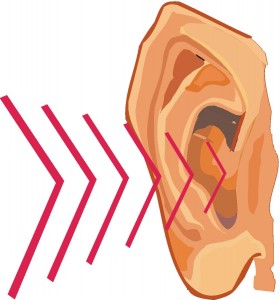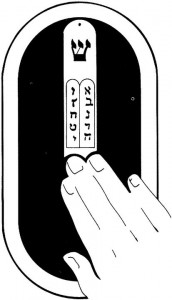Which is it? “Do what I say and do” or is it really, “Do what I say, not what I do?”
Deuteronomy 6:7, 10–16, 20–25, Instruct your children in the Torah, so they don’t fall into idolatry. YHVH is constantly warning his people against idolatry; idol worship is anything that gets in the way of our relationship with him.
If you’re not sure whether you have idols in your life, then ask yourself this question: What is of higher priority in your life than serving YHVH? What in your life takes more of your time, energy and money than serving YHVH? What draws your heart away from the study of his written Word, from prayer and fellowship? What or who hinders you from moving forward in your spiritual walk? What in your life keeps YHVH from getting out of a spiritual box in your life? This is idolatry!
Our children follow our example more than our words. By our actions, if YHVH isn’t first in our lives, our children will follow our example and will be prone to perpetuate our idolatrous ways down the generational line.
Several times YHVH instructs the children of Israel to be certain to instruct their children in the ways of Torah-righteousness. In the Shema, YHVH commands, “And you shall teach them [i.e., his Word] diligently to your children, and talk of them when you sit in your house, and when you walk by the way, and when you lie down, and when you rise up” (6:7). Then in verses 20–25 of the same chapter we read,
“When your son asks you in time to come, saying, ‘What is the meaning of the testimonies, the statutes, and the judgments which YHVH our Elohim has commanded you?’ Then you shall say to your son: ‘We were slaves of Pharaoh in Egypt, and YHVH brought us out of Egypt with a mighty hand; and YHVH showed signs and wonders before our eyes, great and severe, against Egypt, Pharaoh, and all his household. Then He brought us out from there, that He might bring us in, to give us the land of which He swore to our fathers. And YHVH commanded us to observe all these statutes, to fear YHVH our Elohim, for our good always, that He might preserve us alive, as it is this day. Then it will be righteousness for us, if we are careful to observe all these commandments before YHVH our Elohim, as He has commanded us.’”
Too often in the church-system the children have had to take the backseat when it comes to discipleship and ministry. They get a few table scraps thrown at them called “Vacation Bible School” (once a year) and a little “Jonah and the Whale” type teaching on Sunday morning accompanied by some, often inane, craft project. Seldom does the head pastor of the church bother with the children’s ministry. Usually, this function is relegated to the younger associate pastor. Typically, the position of “Youth Pastor” is viewed as nothing more than a stepping stone to the “top dog” position of “Head Pastor.” Furthermore, seldom do parents spend any meaningful time during the week instructing their children in the ways of YHVH. As redeemed Israelites, it is our opportunity to follow the Torah and to place the highest ministry priority on instructing our children in the truths of the written Torah, in the truth of Yeshua the Living Torah, and in the fundamentals of who they are as members of the commonwealth of Israel (Eph 2:12) and in preparing them for the kingdom of Elohim. If we don’t, who will? As parents, what are you doing on a regular basis to diligently instruct your children all day, every day? As grandparents, aunts and uncles and members of gospel-orientated Torah community, what are you doing to help in teaching the children? What was the attitude of the disciples when they attempted to shoo the children away from Yeshua. What was Yeshua’s response? Read and compare Matthew 19:13–15 with 18:1–5 and go and do likewise, for they are our future and our legacy!




